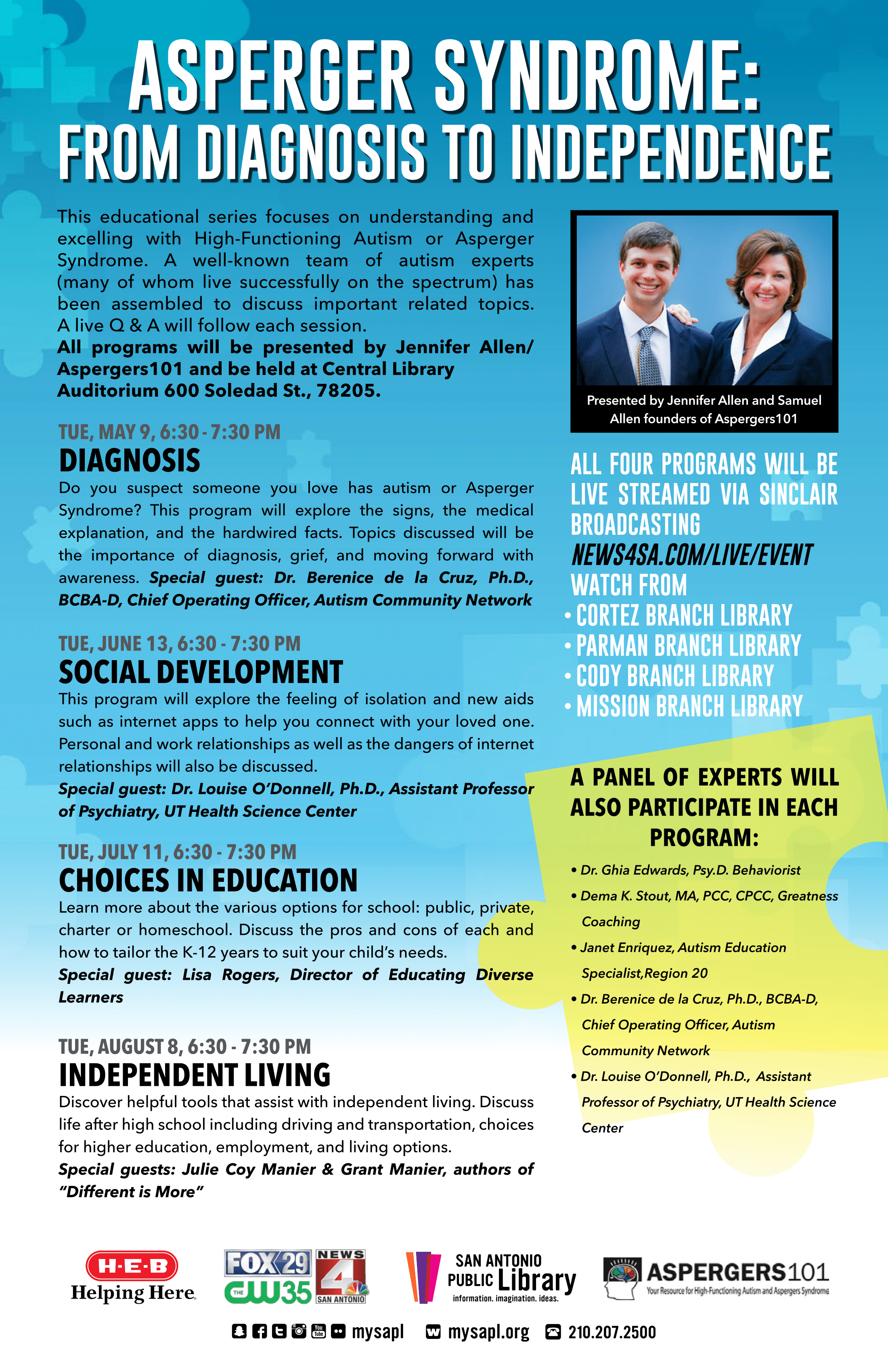From Diagnosis to Independence: Four Workshops on Aspergers from the Experts

In the summer of 2017 Aspergers101 launched a Summer Series on Autism in conjunction with the San Antonio Public Library System. WOAI-TV live-streamed all four conferences where area experts on Autism participated in a panel discussion at the conclusion of every power-packed workshop.
Kicked off by Ron Lucey with the Texas Governor’s Committee on People with Disabilities and announced by Ramiro Salazar, Director of SA Public Library System at the Press Conference, it was a huge endeavor that allowed free access to information on Autism.
This is community and teamwork at its finest!
We want to share all four sessions with you.
The four workshops are as follows:
- Diagnosis
- Social Development
- Choices in Education and
- 26Independent Living
Press Conference Announcing Aspergers101 Summer Series with the San Antonio Public Library Asperger Syndrome: From Diagnosis to Independence.
May 3rd 2017 10:30a San Antonio Public Library Downtown
SUMMER SERIES VIDEO LIBRARY
A graduate of Abilene Christian University, Jennifer had a long career in TV Broadcasting. Upon learning her oldest son Sam had a form of Autism called Asperger’s Syndrome, she left her career and became a full-time mother to both of her sons. Jennifer elicited the participation of her family and together they produced several independent programs including a children’s animated series titled Ameriquest Kids, as well as a documentary and book titled, Coping to Excelling: Solutions for School-age Children Diagnosed with High-Functioning Autism or Aspergers Syndrome. She formed the nonprofit Asperger101 to provide on-going free resources related to ASD at Aspergers101.com and has implemented the Texas Driving with Disability Program and continues to grow the statewide initiative today. She and her husband have recently retired to their property in the Texas Hill Country.


















